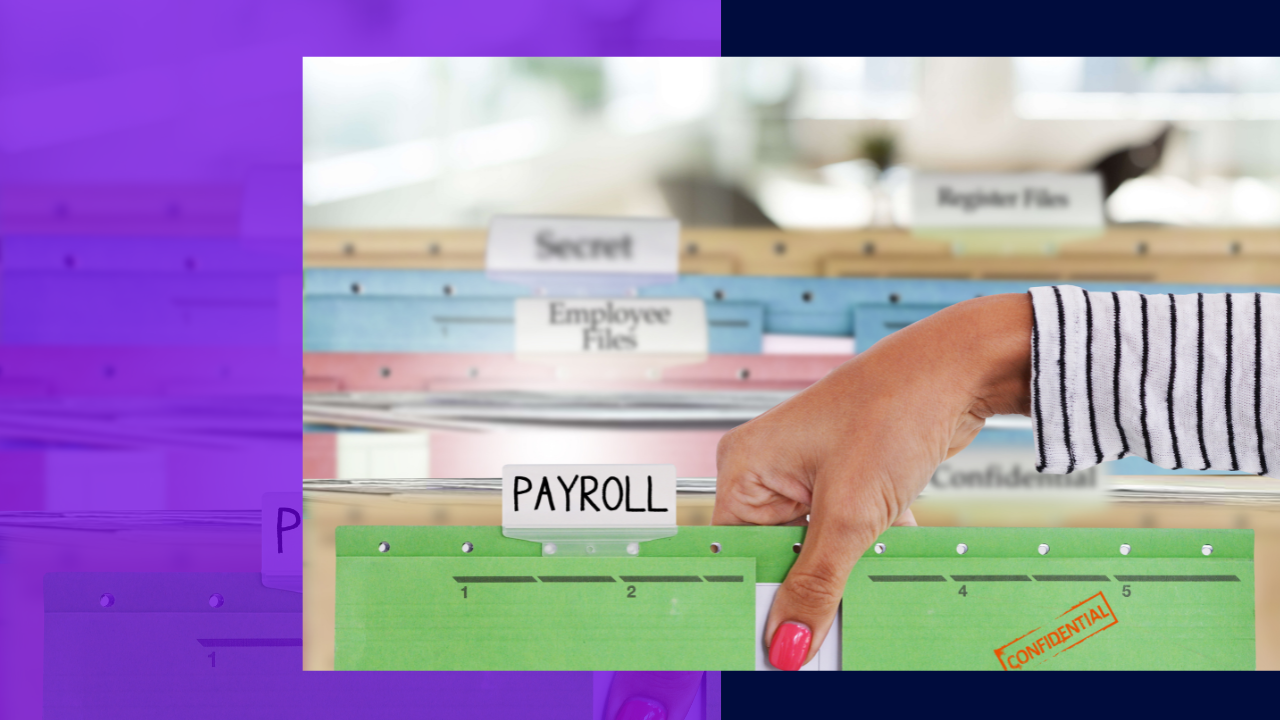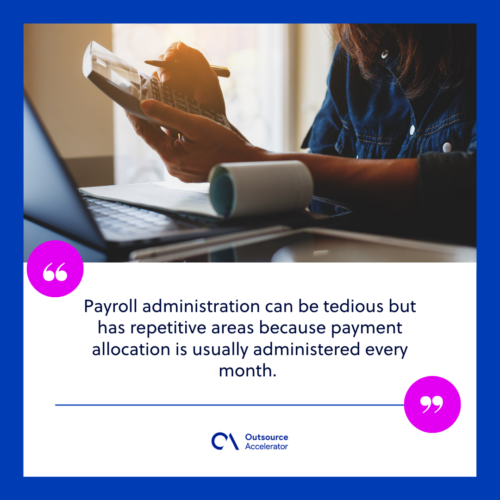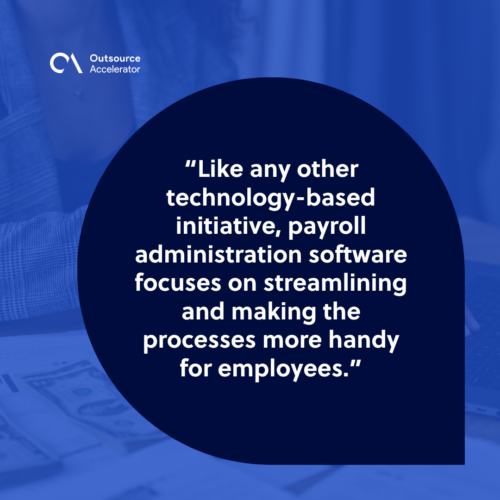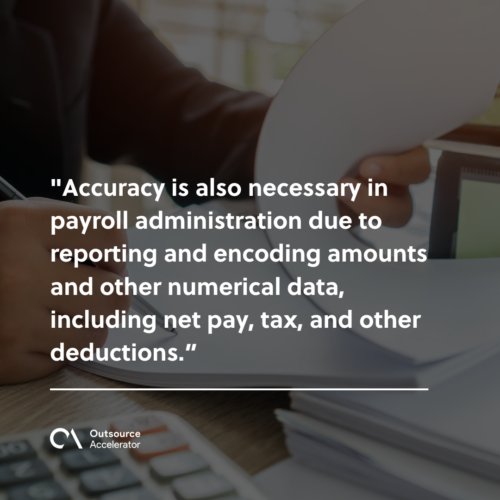Process automation: A new trend in payroll administration

For any organization, the work of the human resources department is critical, as the functions performed align with the welfare of all the employees.
Human resource practitioners are well-trained to perform tedious and fast-facing tasks relating to daily operations. It involves various areas, including recruitment, policy implementation, and payroll administration.
The recent years have transformed human resource (HR) management to continuously support and prioritize employees’ well-being.
Many businesses explore the adoption of flexible working arrangements and process automation tools. It enhances many areas of operational processes, including payroll administration.
The work of process automation in payroll administration
Payroll administration can be tedious but has repetitive areas because payment allocation is usually administered every month.
Process automation is a great platform to streamline repetitive tasks that can be integrated into a customizable software application. It allows an administrator to focus on tasks requiring more focus and attention.
The work of technology is highly progressive, making human resource management software capable of efficiently handling payroll administration.
Payroll administration tools usually facilitate management functions, extending to attendance monitoring, bookkeeping, accounting, and performance management.

Benefits of having payroll administration software
Aside from process automation, other factors help encourage many businesses to start maximizing the use of payroll administration software.
The following advantages have contributed to many companies delivering better services and acquiring more desirable operational outcomes:
Reduced operational costs
Acquiring software applications may be pricey but is cost-effective in the long run. Software tools can help companies save up to 50% of operational costs by minimizing workforce requirements.
With software applications, companies can acquire remote talents who can access the system off-site, decreasing office utility and other resource expenses.
Streamlined systems and process
Like any other technology-based initiative, payroll administration software focuses on streamlining and making the processes more handy for employees.
Payroll recording and monitoring can be challenging. However, process automation lets administrators generate reports, update data, and even do calculations more accurately with just a few clicks.
Scalable and customizable features
Aside from streamlining, software applications today are known because of their ability to promote higher standards of productivity.
Many software providers take innovations as a form of competitive advantage, resulting in various unique features added to meet the company’s requirements.
Some features of payroll administration are customized and scaled up to perform other tasks beyond the usual process. Support functions usually backed the software, including:
- Wage calculation and tax filing
- Leave, deductions, and benefits monitoring
- Direct deposit and compliance management
- Employee profiling and payroll reports

Skills to look for in a payroll administrator
While process automation is often acquired through Software-as-a-Service (SaaS) solutions, a well-skilled payroll administrator is needed to guarantee an effective payroll process.
A seasoned payroll administrator is expected to have the following set of skills:
Tech-savviness
As mentioned, the trends in payroll administration require knowledge of operating system software, particularly in HR systems.
Payroll administrators can easily manage and adjust to the navigation of the software with prior knowledge and experience.
Payroll administration also involves other office suites to back the software in monitoring and recording employees’ data, like Microsoft Word and Excel. Technological expertise lets payroll admins navigate digital platforms more essentially.
Advanced numerical skills
Since payroll centers on employees’ salaries, the role requires advanced calculations, and a background in the accounting system is an advantage.
Accuracy is also necessary in payroll administration due to reporting and encoding amounts and other numerical data, including net pay, tax, and other deductions.
Problem-solving skills
Standard payments, taxes, and even minimum wages are part of policies implemented by the government. A payroll administrator is responsible for implementing all these provisions and related issuances accordingly.
There is also a need to promptly address irregularities in deduction management and other miscalculations to avoid employee inconvenience.
Thus, payroll administration requires problem-solving competencies to effectively and efficiently solve these matters.
Good communication skills
Payroll administrators serve as frontliners in addressing employees’ concerns relative to salaries and payments.
Acquiring skills that can ensure sound conversation at all levels of the organization is imperative. Answering with clarity and excellent customer service techniques will promote a high-level company-employee relationship.

Choosing a payroll administration provider
Consider the above-listed skills and identify which areas of your payroll processes need additional help. Choosing a trusted application service provider (ASP) is important, and researching the company is a smart move to see its credibility.
You may base its reliability on reviews of previous clients, compliance with regulations, business permits, and accreditation from various industries.
A third-party provider with a tech-ready environment for payroll administrators will form part of the overall business productivity. The accuracy and avoidance of challenges in payroll administration provide an excellent connection between the organization and its people.







 Independent
Independent




